THE EARLY YEARS FOUNDATION STAGE CURRICULUM
We regard the teaching of RE in the early years with great importance. RE runs through our teaching and learning themes throughout the year.
The EYFS curriculum is taught in a practical and playful manner with support and challenge from adults in class sessions, small group sessions and on a one to one basis too. There is a combination of adult led, teacher taught sessions as well as a wealth of stimulating continuous provision opportunities. At the heart of our early years curriculum are the ‘Characteristics of Effective Learning’. At Maryport Church of England Primary School, we strive to develop these key characteristics of ‘Playing and Exploring’, ‘Active Learning’ and ‘Thinking Critically’ to maximise their learning skills for the future. Throughout the year, we introduce a range of exciting themes based on children’s interests.
Our learning environments both inside and outside are also adapted regularly to meet the different and developing needs of our children. We ensure that these areas are stimulating, inviting and most importantly they are accessible
The EYFS curriculum in broken down into seven areas of learning. Three of these areas are called ‘Prime Areas’ as they involve key learning and skills that underpin all other learning. The Prime Areas are
- Communication and language
- Physical
- Personal, social and emotional
Communication and Language
This area involves giving children lots of opportunities to speak and listen across a range of situations, which in turn will develop their confidence and expressive skills. Communication and Language is broken down into three aspects:
Listening and attention Children are supported in ‘tuning in’ to what they can hear. This is how children learn to distinguish between different sounds as a build-up to learning how to read and write.
Speaking Children use words to express their needs, ideas and feelings and as a way of sharing what they are thinking with other people. Children are given lots of opportunities to talk so that they have a secure base to then communicate through writing.
Understanding Children will have lots of time to make sense of spoken language, starting with simple short sentences and building up to more complex questions and sentences.
Physical
This area is about how young children gain control of their bodies. It also includes how children learn about keeping themselves active and looks at how children learn to use equipment and materials successfully and safely. Good health in the early years helps to safeguard health and well-being throughout life. It is important that children develop healthy habits when they first learn about food and activity. A good level of development will help children across all areas of the EYFS curriculum by:
- helping children gain confidence in what they can do
- enabling children to feel the positive benefits of being healthy and active
- helping children to develop a positive sense of well-being
Physical Development is broken down into two aspects:
Moving and Handling Children are provided with equipment and resources that are challenging and interesting and that can be used in a variety of ways, or to support specific skills. We also make sure that the children work both on their fine motor skills and gross motor skills daily.
Health and Self-care Children are encouraged to make healthy choices throughout the day, including hand washing and snack. Children are also taught through our school RSE scheme which includes the topics of ‘Brushing our teeth,’ ‘Keeping ourselves clean’ and ‘People who helps us.’
Personal, social and emotional
This area involves helping children to develop a positive sense of themselves, and others; to form positive relationships and develop respect for others; to develop social skills and learn how to manage their feelings; to understand appropriate behaviour in groups; and to have confidence in their own abilities. Personal, social and emotional development is split into three aspects:
Self-confidence and self-awareness Children become confident to try new activities, and say why they like some activities more than others. They are confident to speak in a familiar group, will talk about their ideas, and will choose the resources they need for their chosen activities. They say when they do or don’t need help.
Managing feelings and behaviour Children talk about how they and others show feelings, talk about their own and others’ behaviour, and its consequences, and know that some behaviour is unacceptable. They work as part of a group or class, and understand and follow the rules. They adjust their behaviour to different situations, and take changes of routine in their stride.
Making relationships Children play co-operatively, taking turns with others. They take account of one another’s ideas about how to organise their activity. They show sensitivity to others’ needs and feelings, and form positive relationships with adults and other children. This area also links to our RSE scheme through the topics of ‘How I am special,’ ‘The qualities of a good friend,’ and ‘How each of us are unique.’
The next three areas of learning are called Specific Areas. These are
- Literacy
- Mathematics
- Understanding the world
- Expressive arts and design
Literacy
This involves encouraging children to link sounds and letters and to begin to read and write. Children are given access to a wide range of reading materials (books, poems, and other written materials) to ignite their interest.
Literacy is split into two aspects:
Reading Children are taught to read using Read, Write Inc Phonics. The approach is multi-sensory and playful, using kinaesthetic actions, songs, stories, puppets and pictures to support children’s learning. Once children know a reasonable number of sounds and can blend them to make simple words, they practise by reading texts which are entirely decodable. Please see the Phonics and Reading page of the website for further details.
Writing Children are given a wide range of opportunities to experiment with their emergent writing and mark making. Letter formation is taught alongside phonics. It is very important to encourage correct letter formation from the start, as this is the basis for fluent, legible handwriting in the future. As children move through the Reception Year, they are given opportunities to write and mark-make in contexts which are meaningful to them, such as making ‘wanted’ posters in a police station role play scenario, writing a ‘recipe’ for a ‘magic potion’ or making labels for their construction models. They are also given more structured opportunities to write with the support of a Teacher, always on tasks which are meaningful and appropriate to their individual level of development e.g. a list for the play shop, instructions for making sandwiches or a simple retelling of a familiar story.
Mathematics
This area involves providing children with opportunities to develop and improve their skills in counting, understanding and using numbers, calculating simple addition and subtraction problems; and to describe shapes, spaces, and measures.
Mathematics is split into two aspects:
Numbers By the end of the year children will count reliably with numbers from 1 to 20, place them in order and say which number is one more or one less than a given number. Using quantities and objects, they add and subtract two single-digit numbers and count on or back to find the answer. They solve problems, including doubling, halving and sharing.
Shape, space and measures Children will use everyday language to talk about size, weight, capacity, position, distance, time and money to compare quantities and objects and to solve problems. They recognise, create and describe patterns. They explore characteristics of everyday objects and shapes and use mathematical language to describe them.
Understanding the world
This area involves children making sense of their world and community through opportunities to explore, observe and find out about people, places, technology and the environment.
Understanding of the World is split into three aspects:
People and communities We provide children with opportunities to talk about past and present events in their own lives and in the lives of family members. We will show them that other children don’t always enjoy the same things as them using class discussions and experiences that occur during the day, they are encouraged to be sensitive to this. Children will consider similarities and differences between themselves and others, and among families, communities and traditions. This area also teaches the agreed Religious Education syllabus provided by Cumbria County Council.
The world The children will learn about similarities and differences in relation to places, objects, materials and living things. We will be finding out about some other countries, sorting, investigating, playing and using different materials. They will explore, investigate and talk about the features of their own immediate environment and how environments might vary from one another. They will make observations of animals and plants in and around our grounds and begin to discuss and explain why some things occur, talking about changes.
Technology We have laptops and tablets in school which the children will access to develop their skills and the range of technology used in places such as homes and schools will be highlighted. In the classrooms they can select and use technology for particular purposes on screen and when using the programmable toys available in the classroom.
Expressive arts and design
This area involves supporting children to explore and play with a wide range of media and materials, as well as providing opportunities and encouragement for sharing their thoughts, ideas and feelings through a variety of activities in art, music, movement, dance, role play and design and technology.
Expressive arts and design has two aspects:
Exploring and using media and materials Children will gradually build a repertoire of songs as part of their daily routine, for example to signal a change in routine, such as at tidy up or story time. They will also sing songs as a fun way of learning, for example, phonic jingles, counting and rhyming songs. We will celebrate festivals by learning songs as a year group at times such as Harvest and Christmas time. Children will be shown how to use a range of simple instruments to accompany music and singing and encouraged to explore their different sounds.
During P.E lessons we will explore dances linked to our topic and in class we will encourage children to make music and dance, and experiment with ways of changing them.
In class, children will have opportunities to use a range of simple tools and techniques and we will be helping them to use them safely and independently. They will have access to a wide variety of creative resources, such as, paint, crayons, chalks, pastels etc. as well materials for junk modelling, collage, play dough modelling, paper and fabric art. We will encourage them to explore the materials, experiment with textures and combine different media to create new and original effects! At this age, the processes are more important than the finished product.
Being imaginative Children will be encouraged to use materials and media in original ways, thinking about how they might use the materials and putting them to a purpose. In their art and model making they may create simple representations of events, people and objects. There will be lots of opportunities to express their own ideas, thoughts and feelings through design and technology, art, music and dance. We will provide role play resources and props in our class home corner and encourage the children to play cooperatively alongside other children acting out their own stories; developing narratives and creating make believe scenarios.
Characteristics of Effective Learning
These areas are taught in a practical and playful manner with support and challenge from adults in class sessions, small group sessions and on a one to one basis too. There is a combination of adult led, teacher taught sessions as well as a wealth of stimulating continuous provision opportunities. At the heart of our early years curriculum are the ‘Characteristics of Effective Learning’. At Maryport Church of England Primary School, we strive to develop these key characteristics of ‘Playing and Exploring’, ‘Active Learning’ and ‘Thinking Critically’ to maximise their learning skills for the future. Throughout the year, we introduce a range of exciting themes based on children’s interests.
Our learning environments both inside and outside are also adapted regularly to meet the different and developing needs of our children. We ensure that these areas are stimulating, inviting and most importantly they are accessible to all children, regardless of where they are on their learning journey. The environments are developed to foster independent children.
Within our EYFS curriculum children are assessed continuously through accurate and important observations. These provide us with information for future planning, not only for our individual classes but also for individual children’s next steps in their learning. They enable practitioners to ensure learning is embedded and consistent and that all children continue to make excellent progress within our EYFS setting.
At Maryport Church of England Primary School we believe that the beginning of our children’s educational journey is igniting the beacon for children to ‘Learn, Achieve and Shine’.
PLEASE SEE BELOW FOR OVERVIEWS OF THE CURRICULUM CONTENT
Nursery Curriculum Overviews
Reception Curriculum Overviews
Date Created24 May 2021, 3.03pmLast Modified28 May 2021, 11.40amRecently, we have completed our playground installation to create a fantastic outdoor space to support children's learning. Pentagon Play have installed a new road track for the bikes and a new climbing frame. In addition to this, we have secured funding through Tesco for two new outdoor paint panels, a mud kitchen and a construction, woodwork bench. We were also successful in our bid for funding through 'Learning Through Landscapes'. This enabled us to buy a new wooden gardening shed and some new planters. We have completed the project by having new playground markings installed by ESP. Our Foundation stage children are delighted with all their new things! We are very pleased that we can offer the children an engaging and inspirational place to learn and play- with opportunities to be imaginative, creative and hands on!
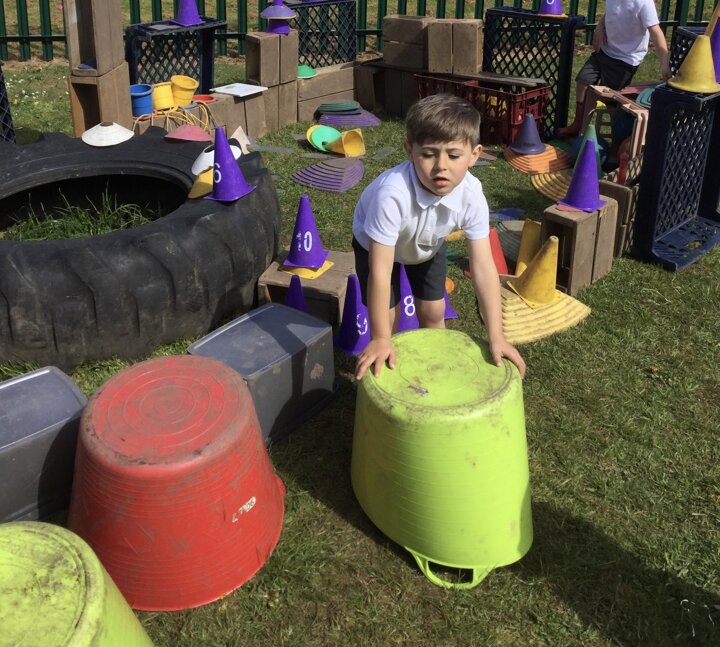
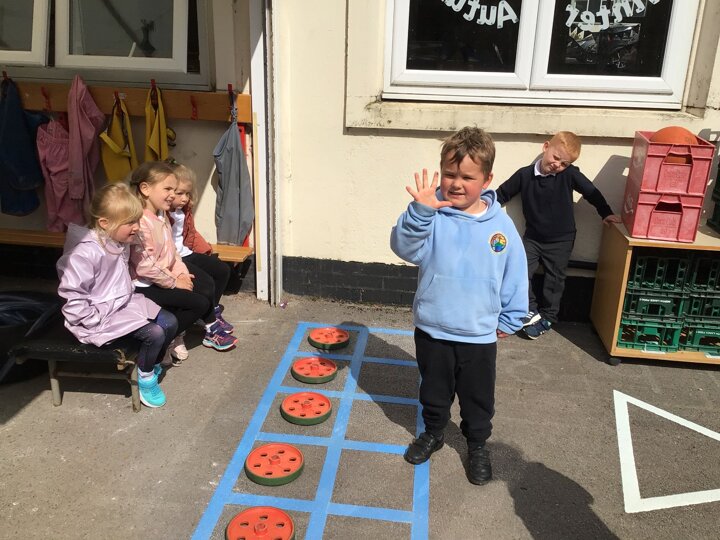
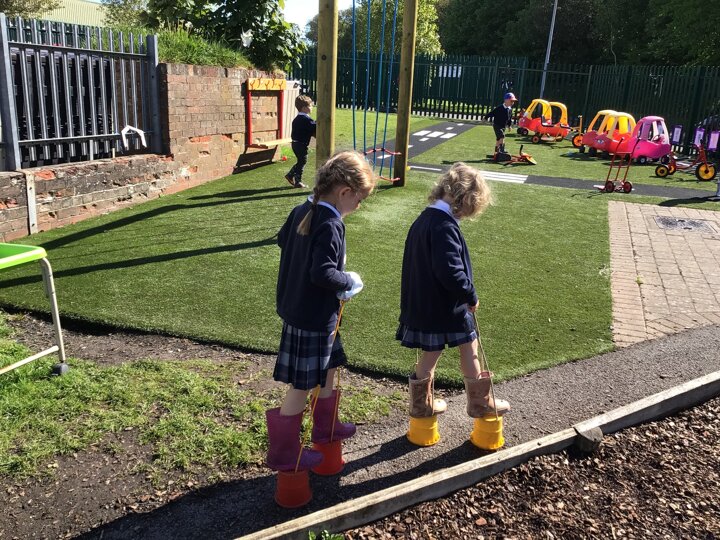
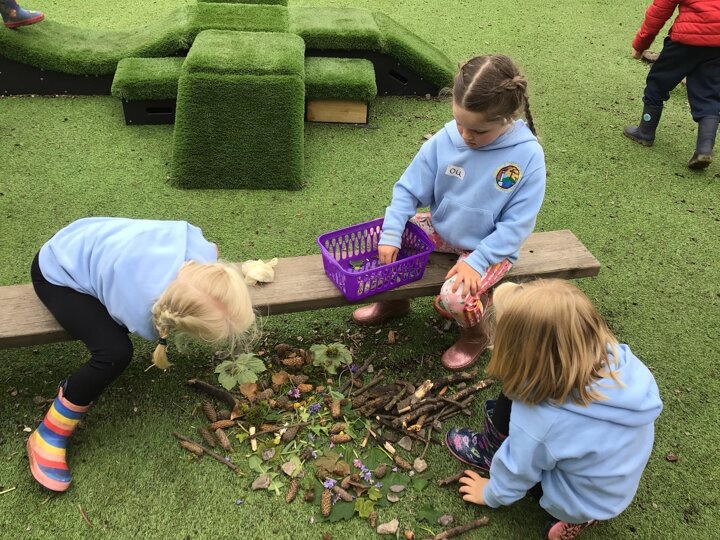
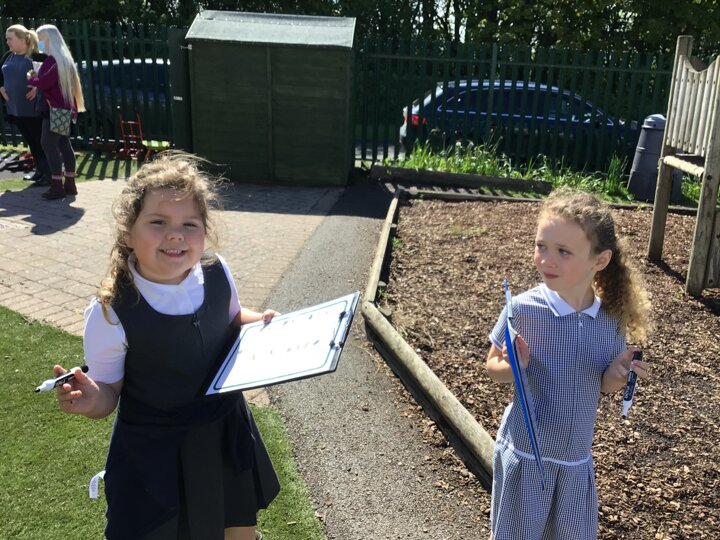
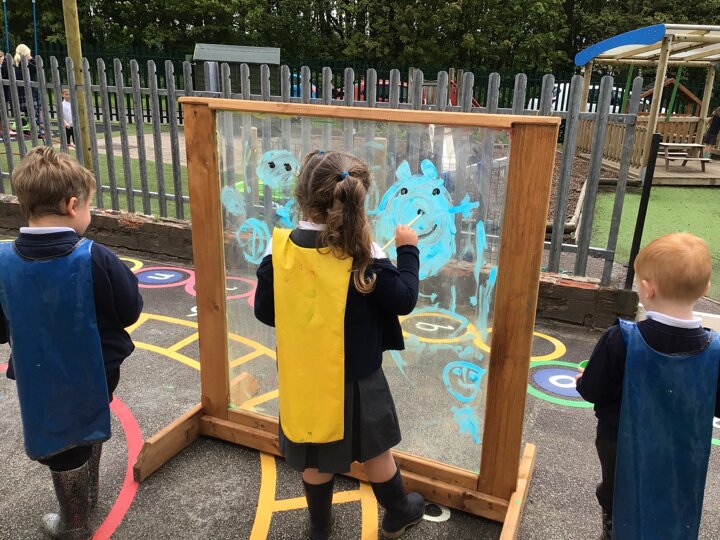
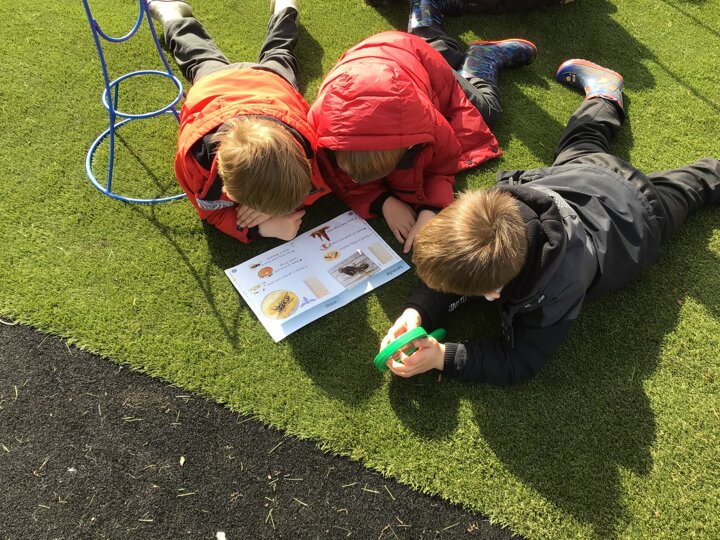
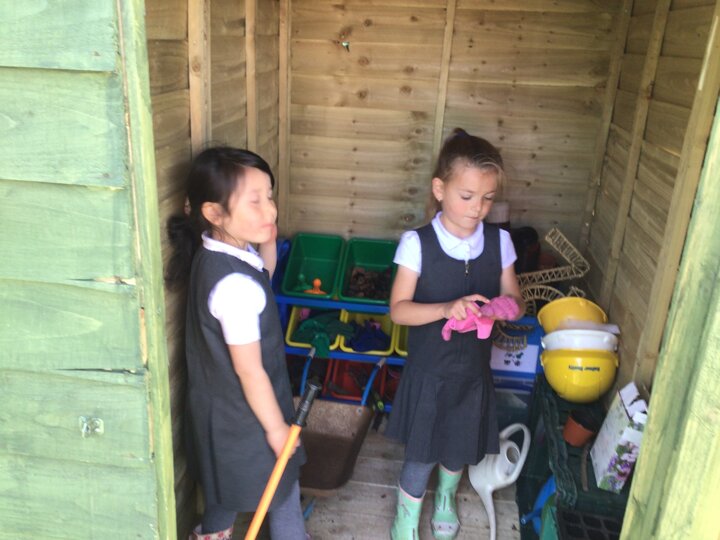
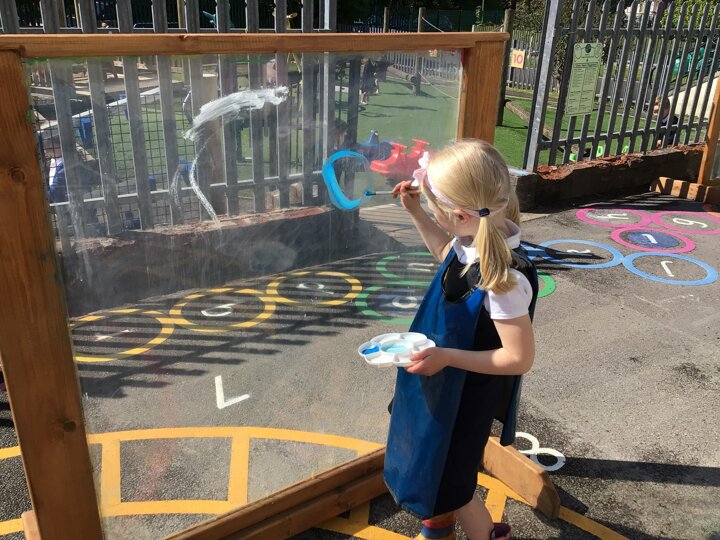
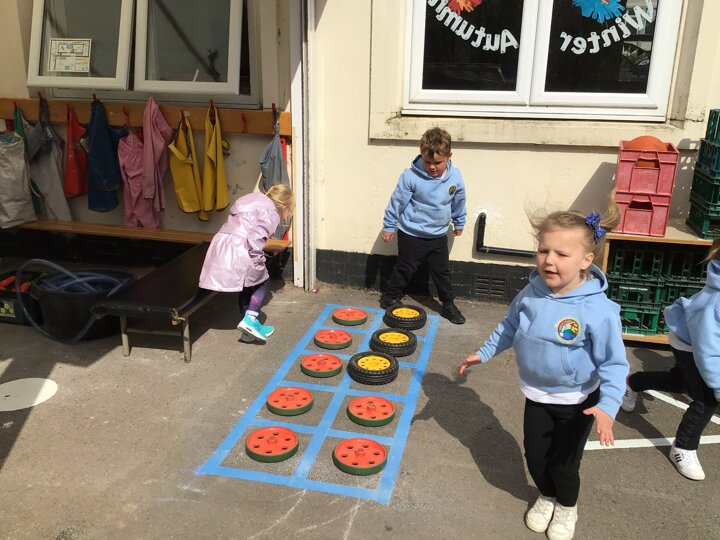
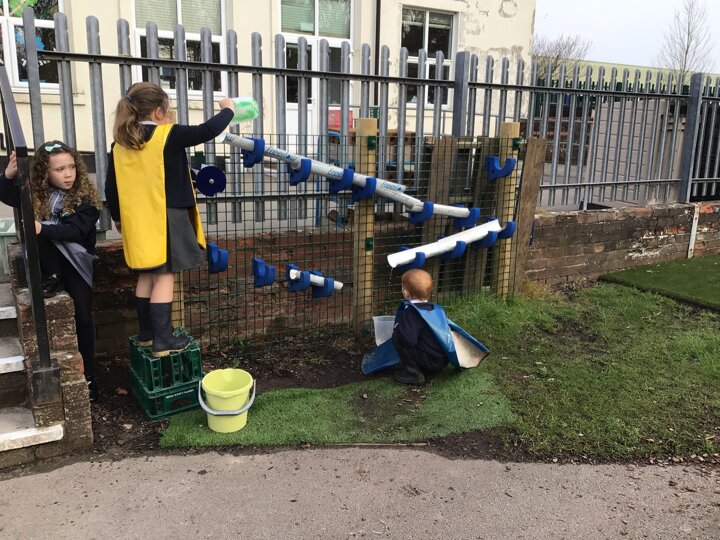
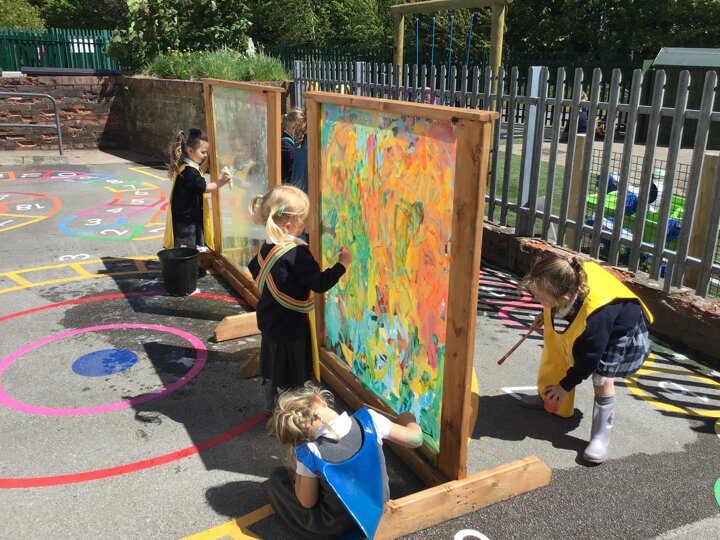
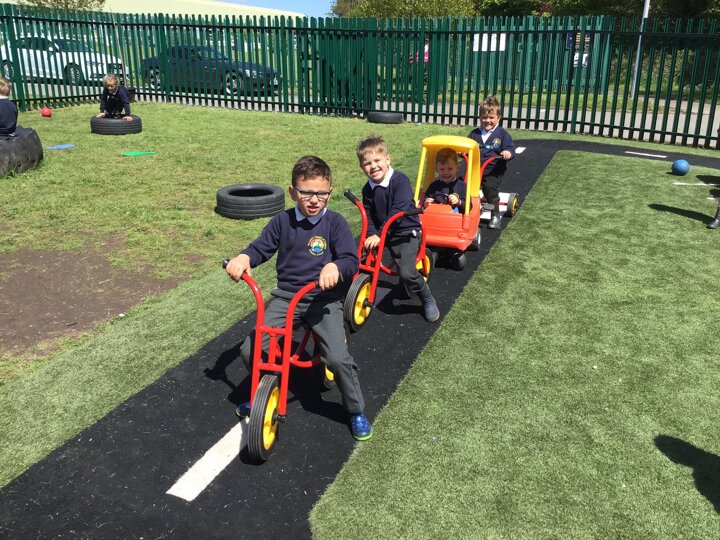
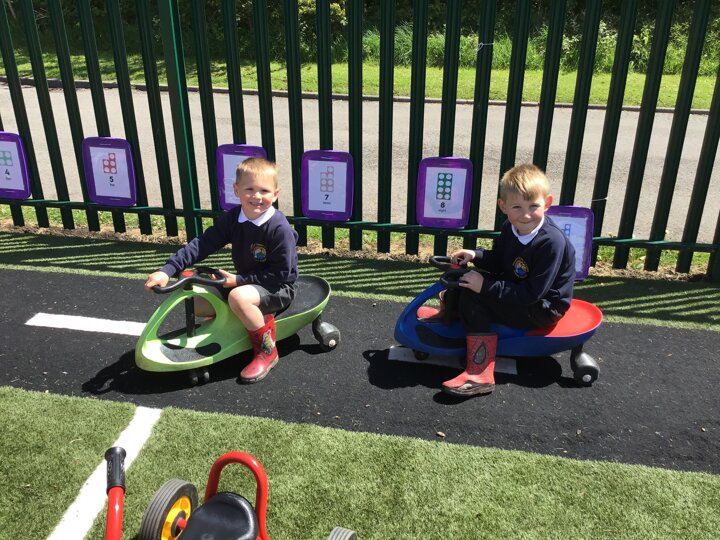
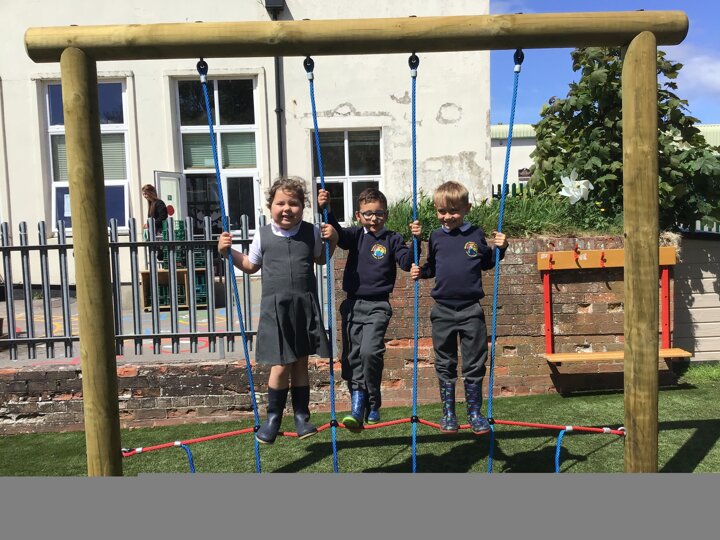
.jpeg)
.jpeg)
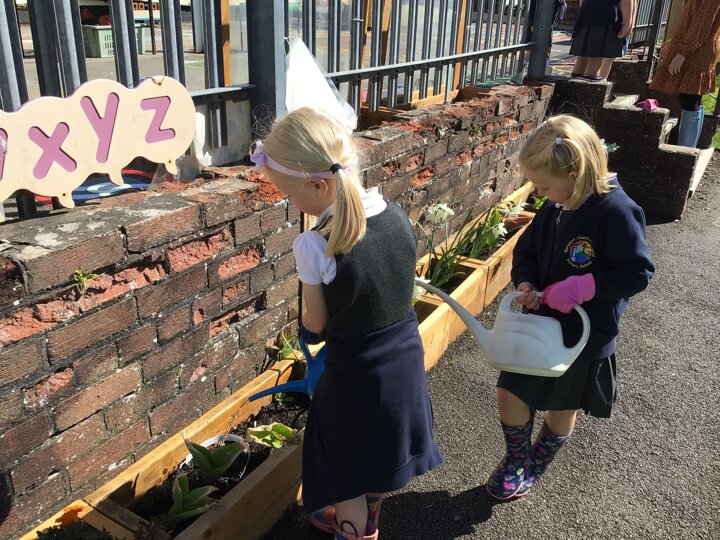
.jpeg)
.jpeg)
.jpeg)